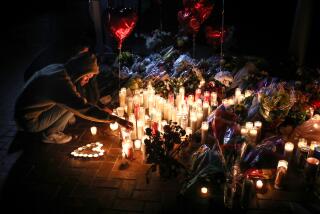PERSONAL HEALTH : Healthy Hearts Need Emotional as Well as Physical Support
- Share via
This year, 1.5 million Americans will suffer heart attacks, according to American Heart Assn. estimates.
And although two-thirds will survive--thanks to improved medical treatments--their psychological needs won’t always be met, contends Herbert N. Budnick, a Torrance psychotherapist who has counseled heart attack patients and their families for more than a decade.
The gap between medical recovery and psychological recovery can be a large one, Budnick finds, because cardiologists, in general, do not pay enough attention to the emotional aftermath of heart disease.
“A physician might say, ‘You’ll be good as new in three months,’ ” Budnick says. “The fact is, it takes more than three months. Anger is a big part of the problem. They are angry at themselves for doing what they did. They have feelings of inadequacy and insecurity. They are afraid of abandonment by a spouse. This is particularly true if the patient is female.”
Barry Miller, a psychologist at the Albert Einstein Medical Center, Philadelphia, says: “Cardiologists are more sophisticated than ever that there are psychological overlays.” But he agrees that they could be more cognizant of a patient’s psychological needs.
“The focus of cardiologists is often the medical aspects (of heart attacks),” adds Dr. W. Allan Edmiston, a Pasadena cardiologist and USC associate clinical professor of medicine.
In his colleagues’ defense, however, he thinks they are doing better. “A large number of cardiologists refer patients to cardiac rehabilitation programs,” he says. These include exercise prescriptions, dietary information and counseling referrals if needed.
*
Patients’ psychological reactions after a heart attack vary, but Budnick often notices a pattern.
“There is depression and anxiety, that everything has been taken away from them,” says Budnick, who recently co-wrote “Heart to Heart, a Guide to the Psychological Aspects of Heart Disease” with author Scott Robert Hays. “Self-perception is grossly distorted.”
Family roles are often reversed, and anger and confusion can result. Heart patients can feel much better just knowing that other patients experience the same feelings.
“Some patients adapt much more quickly than others,” Miller says. “A lot of it has to do with what people bring to the situation. Some are the ‘woe-is-me’ type. They feel they are disabled and never get off the couch. Others say, ‘No way I’m going to let this get me down.’ ”
Not every heart patient needs counseling, says Budnick, whose father suffered four heart attacks and died while Budnick was a youth. “They do need to be able to talk (about their feelings) to a cardiac rehab staff and/or to their physician.”
Recent studies validate the value of social support for heart attack patients:
* A group of patients who survived heart attacks and were followed in a study had an increased risk of repeat heart attacks or cardiac death if they lived alone, according to another report published in the Journal of the American Medical Assn.
* Patients with chest pains and coronary disease showed decreased survival time if they were unmarried and without a partner, according to a study recently published in the Journal.
For more information: the Mended Hearts Inc. is a private Texas-based organization with 220 chapters in the United States. Each chapter conducts educational and social programs, including monthly educational meetings and conversations among participants. Call: (214) 706-1442.






